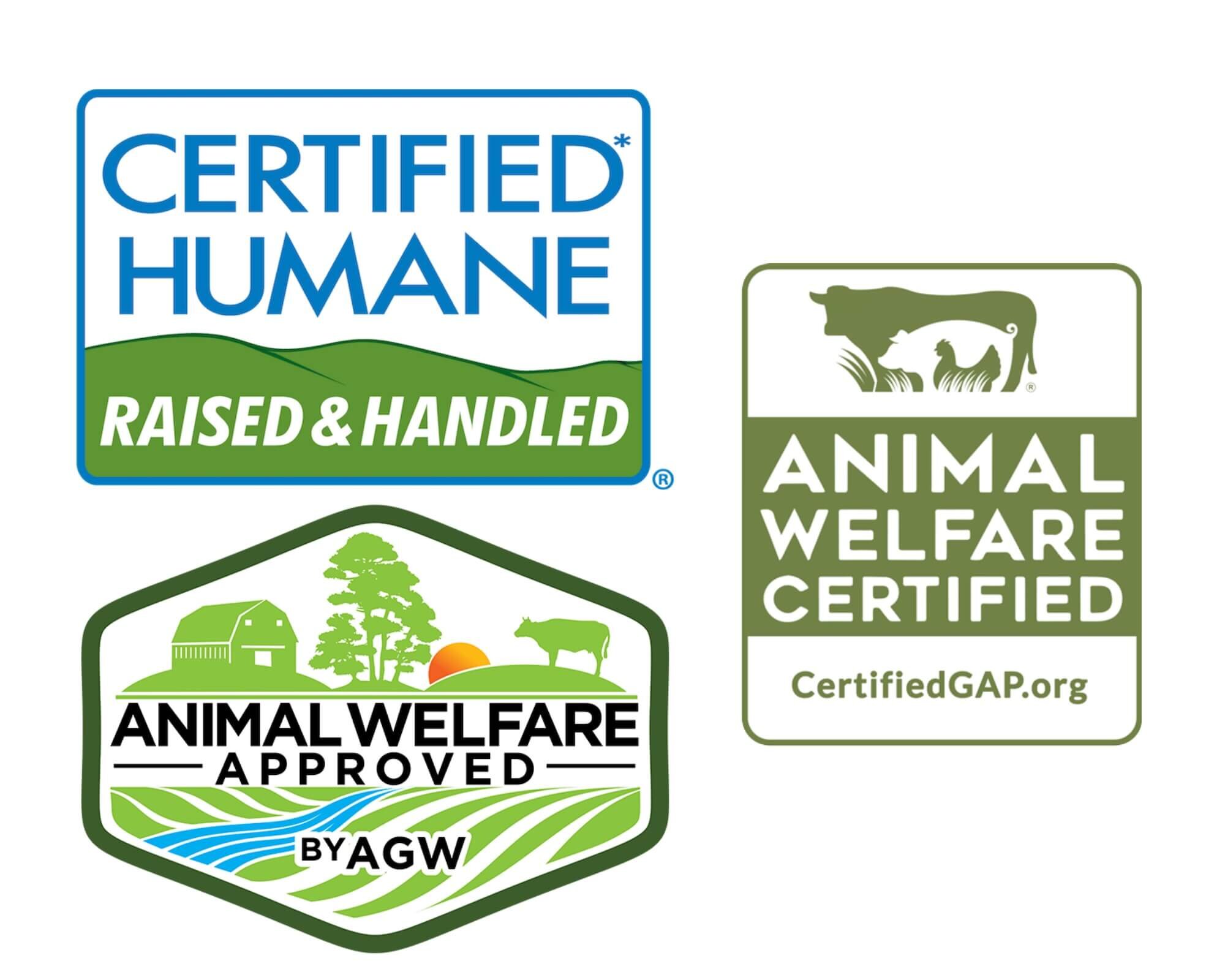What Does It Take for a Cheese to be Animal Welfare Certified?
Cheese, especially that made by large commercial creameries, is not immune to the inhumane factory farming practices more commonly associated with egg and meat production. Like their slaughterhouse-destined counterparts, dairy goats, sheep and cows can suffer extreme stress due to overcrowding and restrictive housing, the inability to express natural behaviors, mutilation and a poor diet. But as awareness of animal welfare grows not just among consumers but within the dairy industry, more and more creameries are obtaining certifications that prove their cheese has been produced with the animals’ interests at heart.
Animal Welfare Certifications
Animal welfare certifications are the primary indicator that a dairy or creamery treats their animals humanely. There are three primary designations: Animal Welfare Approved (AWA) by A Greener World, Animal Welfare Certified by the Global Animal Partnership and Certified Humane by Humane Farm Animal Care (HFAC). To earn any of them, an operation must guarantee that their animals are not confined to crates or cages, that they have access to the outdoors and that they are provided with opportunities for enrichment and the expression of natural behaviors.
goats in pasture photo courtesy of Prairie Fruits Farm
Animal Welfare Approved from A Greener World is arguably the most rigorous of the certifications, and one that Prairie Fruits Farm & Creamery in Champaign, IL has held since 2010. “The main requirements are that our goats have continuous access to pasture, that over 70% of their diet comes from forage and that we provide a living environment that allows our goats to express their natural behaviors like climbing structures and places for different groups to hang out together,” explains Prairie Fruits co-owner Leslie Cooperband.
At the farm, Cooperbrand uses a silvopasture grazing system that regularly rotates the herd between pastures that are rich in shade trees and herbaceous plants. The practice isn’t just good for the goats, it’s good for the cheese they produce. “Because of the diversity of diet in such a system, there are more complex flavor compounds in the milk,” she says.
Cracked Pepper Chèvre Frais courtesy Prairie Fruits Farm & Creamery
Certified Humane’s requirements are similar but slightly less stringent: dairy animals don’t have to spend their entire lives at a sustainable, independent farm at which they are primarily raised outdoors. The Animal Welfare Certification by Global Animal Partnership, by contrast, identifies a dairy or creamery’s animal welfare according to a five step system. The higher the step they’ve reached, the more humane their practices. Those with a Step 5 certification do not use crates or feedlots and do not overcrowd or physically alter their animals. Step 5 recipients also provide their animals with enhanced outdoor access and a lifetime of security on just one farm.
The Impact of Animal Welfare Certification
Earning an animal welfare certification is an involved process that applies not just to the care of the animals but to their management. Third-party audits are conducted annually to assure that certified operations are keeping their promises.
Redwood Hill Farms goats photo courtesy of Redwood Hill.
Although the goats at Redwood Hill Farm in Sebastopol, CA had been raised humanely for close to 40 years, they weren’t awarded their Certified Humane status until 2005 - the first goat dairy in the United States to earn it. But feeding a herd a nutritious diet free of antibiotics and hormones, providing them with adequate shelter against the weather and using low-stress techniques for tasks like milking and clipping are just some of the benchmarks animal welfare organizations want to see.
“The biggest area of change was the additional record keeping,” says Seair Lorentz, brand manager at Redwood Hill Farms. “Maintaining Certified Humane status is an ongoing commitment that requires rather extensive documentation and annual inspection by the HFAC.”
Due to those administrative and maintenance requirements, small family-owned dairies don’t always have the resources to complete an animal welfare certification, even if their husbandry practices meet its standards. To give them a fair shot, Redwood Hill shepherds their smaller partner operations through the process. ”We’ve found that it’s essential to provide support to our partners so that they can succeed in obtaining and maintaining their certifications,” continues Lorentz.
Despite the challenges in acquiring it, animal welfare certification can raise the visibility of small, family-owned dairies and creameries and the cheese they sell. “Being certified Animal Welfare Approved gives us an opportunity to market our goat dairy products to folks who care about where their food comes from and how animals are raised,” explains Cooperband.
Both Prairie Fruits and Redwood Hill also see their certification as a way to educate the public. “Each company that adds the Certified Humane mark onto their products is helping to raise consumers’ awareness about animal welfare and how it relates to their food,” says Lorentz. And the more dairies and creameries that earn an animal welfare certification, the more competitive pressure other dairies and creameries will feel to follow the same path.
Goats at Surfing Goat Dairy photo credit Amy Sherman
Finding Animal Welfare Certified Cheese Producers
More than 20 cheese producers in the United States, including Prairie Fruit Farms & Creamery are now Animal Welfare Approved, Animal Welfare Certified or Certified Humane. Others include Surfing Goat Dairy in Hawaii, Shelburne Farms in Vermont and Green Dirt Farms in Missouri. As consumers learn more about the importance of animal welfare and the impact of humane practices on the quality of dairy products, more are likely to follow.
“Being good stewards of the land and animals is something my parents instilled in me when they first founded Redwood Hill Farm 53 years ago,” says owner Jennifer Bice. “I’m proud to continue their legacy of guaranteeing the health, happiness and ethical treatment of all the animals that supply milk for our products.”





